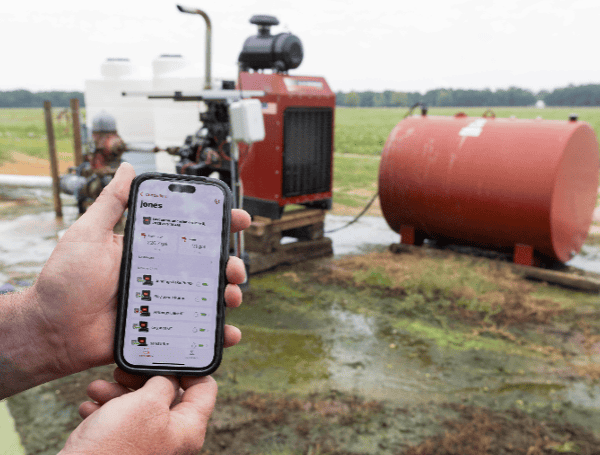
As May brings peak watermelon season to North Florida and farmers gear up for anticipated harvests around Memorial Day, a quiet revolution is taking root in the fields. Gone are the days of solely relying on manual labor to twist water valves. Instead, an increasing number of growers are embracing automated irrigation systems, leading to significant water conservation across the region.
A recent assessment conducted by the University of Florida’s Institute of Food and Agricultural Sciences (UF/IFAS) on nine watermelon growers in the Suwannee Valley has illuminated the profound impact of this technological shift. These farmers, cultivating a total of 1,883 acres, collectively saved an impressive 164 million gallons of water last year alone thanks to the implementation of automated irrigation.
READ: UF/IFAS To Host Florida Agricultural Policy Outlook Conference
Tyler Pittman, the UF/IFAS agriculture and natural resources agent who spearheaded the assessment, is optimistic about the future. “We’re flirting with saving more than 696 million gallons of water each year if the farmers of all 8,000 acres of watermelon in the region adopt this technology,” he stated.
Pittman has been at the forefront of this movement, leading a years-long educational campaign aimed at Suwannee Valley farmers. Supported by grants from the Florida Department of Agriculture and Consumer Services (FDACS), his efforts include establishing 110 acres of demonstration sites, conducting Extension programming attended by hundreds, and providing personalized consultations to farmers curious about the technology.
The focus on efficient irrigation management is crucial for successful commercial watermelon production. UF/IFAS recommends short, frequent irrigation cycles to maximize water absorption by the plants while minimizing water and nutrient leaching. Traditional irrigation systems, however, necessitate time-consuming travel between fields to manually operate valves. Wireless automation equipment offers a solution, allowing growers to precisely control water output, schedule irrigation, and manage their systems remotely via smartphone applications.
READ: Florida Legislature Passes Historic Farm Bill, Championed By Commissioner Simpson
“Farmers can irrigate their fields while sitting on a beach on an island somewhere,” Pittman quipped. “All they need is an internet connection.”
The benefits of automation extend beyond water conservation. According to Pittman’s survey, 89% of participating farmers reported significant time savings, averaging 1.7 fewer hours spent in the field each day. Furthermore, all surveyed farmers experienced reduced water usage, with average irrigation run times decreasing by 1.4 hours daily – a remarkable 24% reduction.
Adam Whitehurst, a watermelon grower in Alachua and Levy counties, invested in automation equipment with the goal of enhancing efficiency. “The system allows me to monitor fertilizer run times and measure exactly how much I put out,” Whitehurst explained. “The crop just grows better.”
Cost-share programs have proven to be a powerful catalyst in encouraging farmers to adopt these systems, which can range from $10,000 to $20,000 per field. Two-thirds of the surveyed farmers indicated they would not have made the investment without financial assistance from programs offered by the FDACS Office of Agricultural Water Policy and the Suwannee River Water Management District. Notably, over half of the participating farmers received more than $10,000 to purchase their equipment.
READ: FWC Memo Outlines Potential Black Bear Hunt In Florida Amid First Recorded Fatal Attack
Garrett Beach, a watermelon farmer in Gilchrist County who automated the irrigation of 600 acres in 2023, initially harbored some reservations. “If it wasn’t for cost share, there’s no way I would have thought about trying automation,” he admitted. For the first few weeks, he manually operated the system out of habit.
“Now, I trust it, and I see its value,” Beach concluded. “I won’t farm without it from now on.”
As Memorial Day approaches and the promise of a bountiful watermelon harvest looms, the quiet hum of automated irrigation systems across North Florida signifies a significant step towards more sustainable and efficient agricultural practices, benefiting both the farmers and the region’s precious water resources.
Please make a small donation to the Tampa Free Press to help sustain independent journalism. Your contribution enables us to continue delivering high-quality, local, and national news coverage.
Connect with us: Follow the Tampa Free Press on Facebook and Twitter for breaking news and updates.
Sign up: Subscribe to our free newsletter for a curated selection of top stories delivered straight to your inbox.
